Marine Life & Conservation
Lionfish: a very spiny problem!
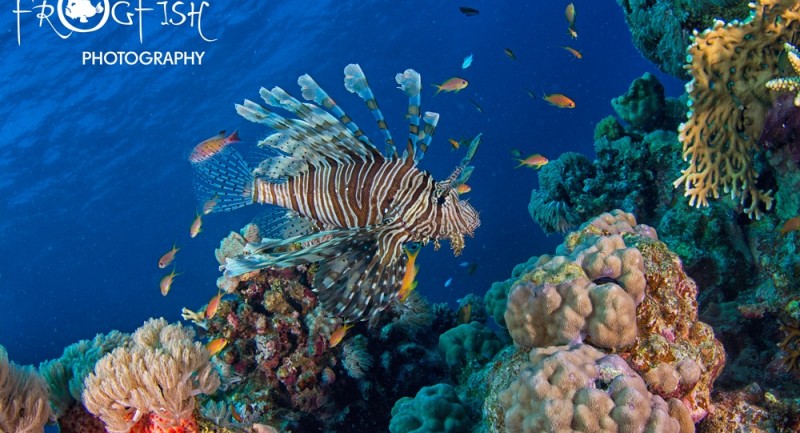
For anyone who has been diving in the Caribbean in the last few years, you have probably heard of the lionfish problem. Having taught marine biology & conservation in the Caribbean for several years, it’s a question I get asked about a lot. This blog explains some of the facts about lionfish and what we can do to help our reefs:
- Where should they be?
- How did they get into the Caribbean?
- What is all the fuss about?
- What you can do to help the reefs?
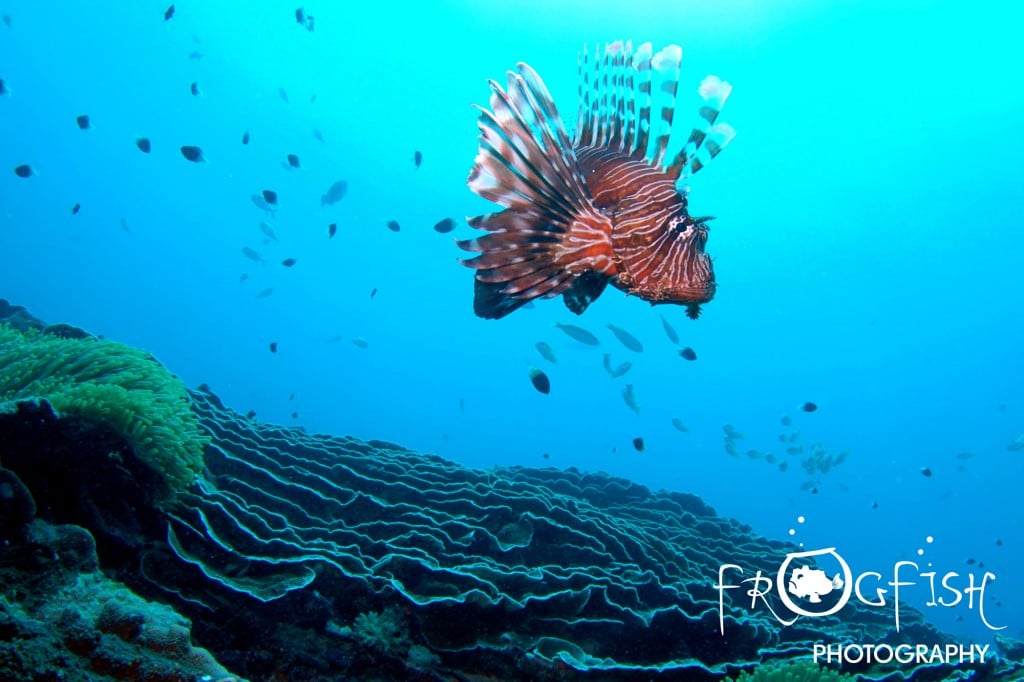
Where should they be?
Lionfish are a beautiful predatory fish, native to the Indian and Pacific Oceans and the Red Sea.
In their native habitat the lionfish is great to observe and photograph. They are not very common as they have natural predators that keep population down and in balance with the other reef fish (Density/hectare in the Pacific is ~20).
How did they get into the Caribbean?
Unfortunately since 1992, two species of lionfish (Pterois volitans & Pterois miles) are now found in the Atlantic Ocean and the Caribbean Sea, where they are an invasive species. The theory is that captive lionfish were released or escaped off the coast of Florida and the population has spread. Lionfish established themselves in the Caribbean in less than 3 years and range from North Carolina to South America including the Gulf of Mexico. From a few individuals in 1992 the population has now spread out of control to become a major problem in the ecosystem (Density/hectare in Caribbean ~398 in 2012).
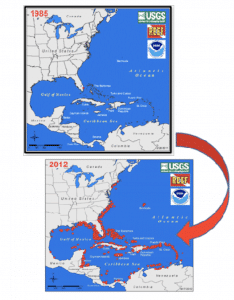
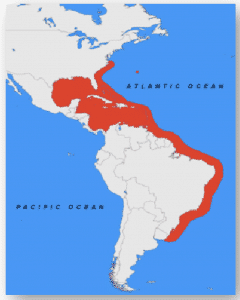
What is all the fuss about?
Why are lionfish an issue?
To understand the issue, we first need to know a bit about the fish.
Lionfish biology:
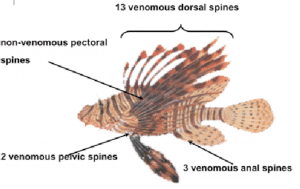
They have venomous tissue within their spines for protection and are generalist carnivores. Adults can grow up to 42cm and have a lifespan of 5-10 years. They become sexually mature in less than a year and spawn in pairs. Females can release 30,000 eggs at one time. Enclosed in a mucus layer, the eggs float to the surface. In a few days the mucus dissipates and the eggs are released to be dispersed by ocean currents.
Habitat & ecology
Lionfish inhabit all marine habitat types (reefs, lagoons, mangroves, sea grass beds, sand patches and artificial substrates) and can handle tropical temperatures all the way down to 10°C. They can also live at a huge range of depths (from shoreline to over 300m or 1000 feet), though they tend to be territorial, so may remain in the same area for up to 7 months. They appear to be attracted to cleaning stations.
So why are they a problem?
Lionfish have no natural predators in the Caribbean. The density per hectare of invasive lionfish is around 20x higher than in their native waters. They consume over 70 species of fish and many invertebrate species and can eat prey up to half their body length (basically they can eat pretty much anything!). This makes them top predators along with sharks, rays and groupers. By colonising mangroves and sea grass beds they pose a major threat to juvenile fish (this is where lots of baby fish live until they are big enough to survive out on the reef).
On heavily invaded sites, lionfish have reduced their fish prey population by up to 90% and continue to consume native fishes at unsustainable rates. Many reefs have been decimated of the native reef fish as the lionfish consume until supply of fish has run out. Once the food has run out, lionfish can survive for 12 weeks with no food, so can move on to other feeding grounds. Reefs without fish don’t function, so the coral also starts to suffer.
Invasive lionfish reproduction occurs throughout the year and as frequently as every 4 days (whereas native Indo-Pacific lionfish breed only once a year!). This means an invasive female lionfish can lay over 2 million eggs/year in the Caribbean. And unlike in the Indo-Pacific, many of these eggs will survive to adulthood. This means the populations are increasing at a phenomenal rate (700% in 4 years!).
Where lionfish containment programs operate, the deep dwelling fish can be very hard to get to in order to kill or capture. So lionfish pose a threat to the integrity of the reef food web and can have wide reaching impacts on commercial fisheries, tourism, and overall coral reef health.
What you can do to help the reefs?
Educate others and spread awareness of lionfish.
EAT THEM!! They are a delicious delicacy (see RECIPES below!). Also eating this fish reduces pressure on fish stocks of native species.
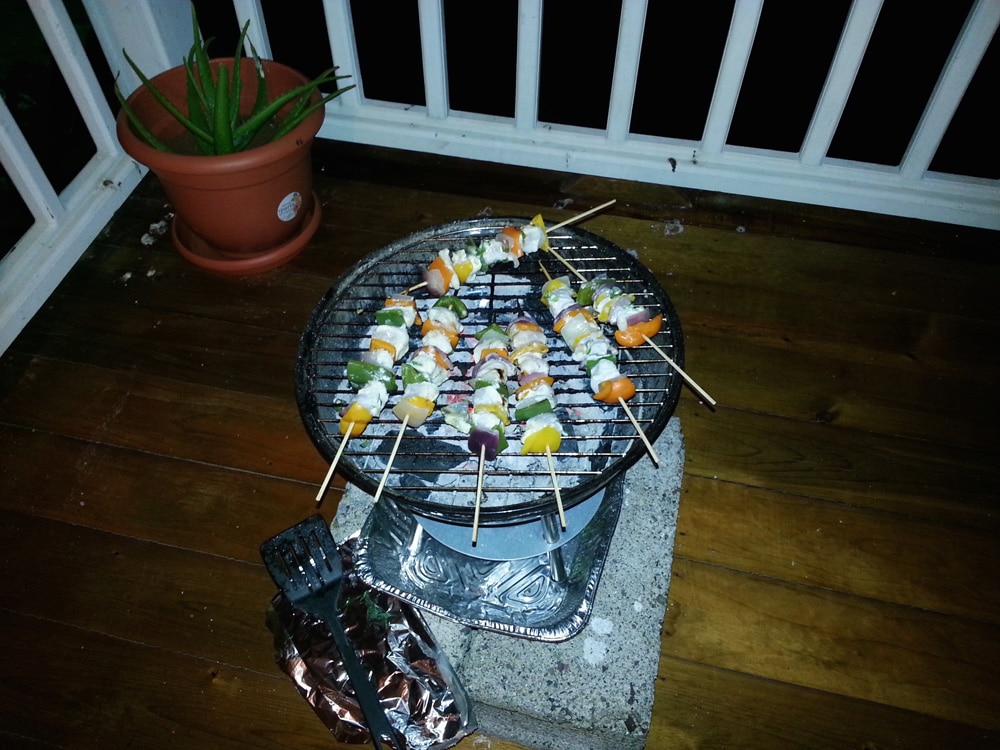
Encourage local restaurants to serve Lionfish and promote consumption by community members.
We need to be the main predator and keep dive sites as free of Lionfish as possible. Though we cannot get all of them, reducing the numbers on the coral reef and shallow water can really help native fish species and coral health.
Lionfish removal:
Spearing lionfish is quick and safe if done properly (Hawaiian Slings can be used very effectively). A tube container is recommended to store captured fish.
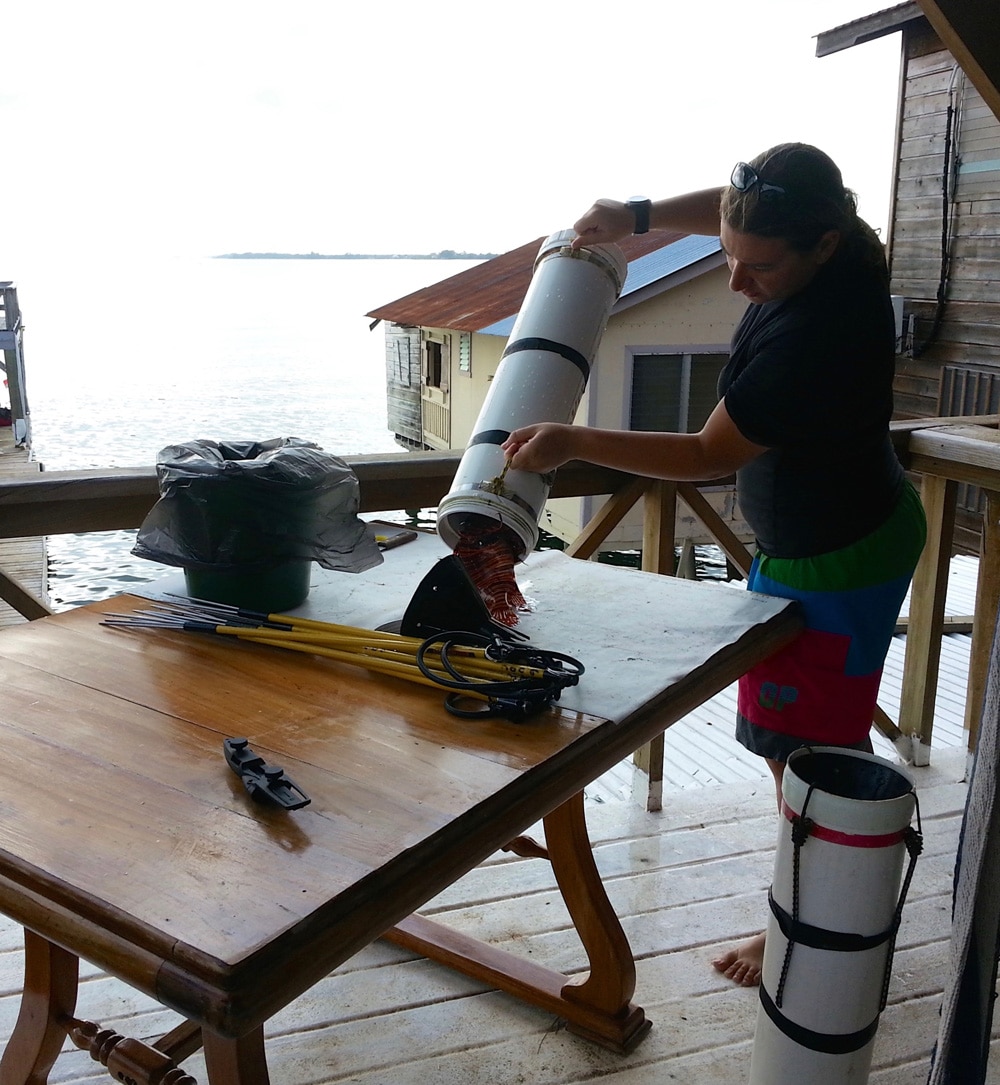
Many marine park authorities and islands have licensed spearing lionfish as local removal efforts can significantly reduce lionfish densities and subsequent impacts. Efforts are invaluable for supporting other conservation initiatives like management of marine protected areas, pollution control and fish stock rebuilding in order to help our reefs.
Try our favourite Lionfish Recipes! To see them click here.
- Island Lionfish Fry
- Lionfish Ceviche
- Lionfish Coconut Curry
- Coconut Lionfish with Spicy Mango Dip
- Marinara Lionfish Spaghetti
- Lionfish Tacos with Street Corn and Salsa
- Cajun Spiced Lionfish Fillets with Mango Salsa
- White Wine Lionfish
- Lionfish Sanganaki
- BBQ Lionfish: Kebabs and Parcels
Marine Life & Conservation
Double Bubble for Basking Sharks

 The Shark Trust is excited to announce that, for two more days only, all donations, large or small, will be doubled in the Big Give Green Match Fund!
The Shark Trust is excited to announce that, for two more days only, all donations, large or small, will be doubled in the Big Give Green Match Fund!
Donate to Basking in Nature: Sighting Giants
The Shark Trust is hoping to raise £10k which will be doubled to £20k. This will go towards Basking in Nature: Sighting Giants. And they need YOUR help to reach they’re goal.
The Shark Trust’s citizen science project is to monitor and assess basking sharks through sightings; encouraging data collection, community engagement, and promoting nature accessibility. This initiative aims to enhance health and wellbeing by fostering a deeper connection with British Sharks.
Campaign Aims
- Increase citizen science reporting of Basking Sharks and other shark sightings to help inform shark and ray conservation.
- Provide educational talks about the diverse range of sharks and rays in British waters and accessible identification guides!
- Create engaging and fun information panels on how to ID the amazing sharks and rays we have on our doorstep! These can be used on coastal paths around the Southwest. With activities and information on how you can make a difference for sharks and rays!
- Promote mental wellbeing through increasing time in nature and discovering the wonders beneath the waves!
Donate, and double your impact. Click Here
Marine Life & Conservation
Leading UK-based shark conservation charity, the Shark Trust, is delighted to announce tour operator Diverse Travel as a Corporate Patron

 Corporate Patrons provide a valuable boost to the work of The Shark Trust. The Trust team works globally to safeguard the future of sharks, and their close cousins, the skates and rays, engaging with a global network of scientists, policymakers, conservation professionals, businesses and supporters to further shark conservation.
Corporate Patrons provide a valuable boost to the work of The Shark Trust. The Trust team works globally to safeguard the future of sharks, and their close cousins, the skates and rays, engaging with a global network of scientists, policymakers, conservation professionals, businesses and supporters to further shark conservation.
Specialist tour operator Diverse Travel has operated since 2014 and is committed to offering its guests high quality, sustainable scuba diving holidays worldwide. Working together with the Shark Trust will enable both organisations to widen engagement and encourage divers and snorkellers to actively get involved in shark conservation.
“Sharks are truly at the heart of every diver and at Diverse Travel, we absolutely share that passion. There is nothing like seeing a shark in the wild – it’s a moment that stays with you forever!” says Holly Bredin, Sales & Marketing Manager, Diverse Travel.
“We’re delighted to celebrate our 10th year of business by becoming a Corporate Patron of the Shark Trust. This is an exciting partnership for Diverse and our guests. We will be donating on behalf of every person who books a holiday with us to contribute towards their vital shark conservation initiatives around the world. We will also be working together with the Trust to inspire divers, snorkellers and other travellers to take an active role – at home and abroad – in citizen science projects and other activities.”
Paul Cox, CEO of The Shark Trust, said:
“It’s an exciting partnership and we’re thrilled to be working with Diverse Travel to enable more divers and travellers to get involved with sharks and shark conservation. Sharks face considerable conservation challenges but, through collaboration and collective action, we can secure a brighter future for sharks and their ocean home. This new partnership takes us one more valuable step towards that goal.”
For more information about the Shark Trust visit their website here.
For more about Diverse Travel click here.
-

 News3 months ago
News3 months agoHone your underwater photography skills with Alphamarine Photography at Red Sea Diving Safari in March
-

 News3 months ago
News3 months agoCapturing Critters in Lembeh Underwater Photography Workshop 2024: Event Roundup
-

 Marine Life & Conservation Blogs2 months ago
Marine Life & Conservation Blogs2 months agoCreature Feature: Swell Sharks
-

 Blogs2 months ago
Blogs2 months agoMurex Resorts: Passport to Paradise!
-

 Blogs2 months ago
Blogs2 months agoDiver Discovering Whale Skeletons Beneath Ice Judged World’s Best Underwater Photograph
-

 Marine Life & Conservation2 months ago
Marine Life & Conservation2 months agoSave the Manatee Club launches brand new webcams at Silver Springs State Park, Florida
-

 Gear Reviews3 months ago
Gear Reviews3 months agoGear Review: Oceanic+ Dive Housing for iPhone
-

 Gear Reviews2 weeks ago
Gear Reviews2 weeks agoGEAR REVIEW – Revolutionising Diving Comfort: The Sharkskin T2 Chillproof Suit






